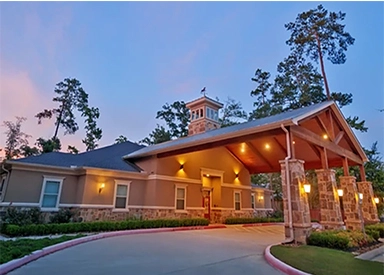
Selecting a memory care facility for a loved one in Houston requires careful consideration. These facilities provide specialized care for individuals with Alzheimer’s, dementia, and other memory impairments, ensuring dignity, respect, and a high quality of life.
Here are the top 10 criteria to help you choose the right memory care facility in Houston, Texas
Specialized Care Services
The most important factor when choosing a memory care facility is the quality and scope of the services offered. Memory care facilities in Houston should provide care tailored to residents with cognitive impairments.
Look for facilities with trained staff in dementia care and personalized care plans that address each resident’s specific needs.
The facility should also offer emotional, physical, and spiritual support to enhance residents’ well-being.
Safe and Secure Environment
Safety is a priority in memory care facilities, especially for residents who may wander or become disoriented. To reduce confusion and anxiety, ensure the facility has locked doors, alarmed exits, and secure outdoor spaces.
The design should minimize fall risks, with well-lit hallways and bathroom grab bars. The environment should be soothing, with calming colors and familiar settings.
Highly Trained and Compassionate Staff
The staff’s qualifications and demeanor are crucial when evaluating a memory care facility in Houston, Texas. Look for compassionate, patient professionals trained in dementia and Alzheimer’s care.
A caring, attentive staff will foster meaningful relationships with residents, improving their quality of life. Check the staff-to-resident ratio to ensure your loved one receives the needed attention.
Personalized Care Plans
A great memory care facility will develop an individualized care plan for each resident. The care plan should be based on the resident’s medical history, cognitive abilities, and personal preferences.
It should also be flexible and adjusted to accommodate changes in the resident’s condition. Personalized care ensures residents receive the support they require while maintaining their dignity.
Family Involvement and Communication
Memory care facilities should encourage family involvement in the care process. Families should be updated on their loved one’s progress, with clear communication channels for concerns and feedback.
A facility that values family participation helps build trust, making it easier for families to ensure their loved one’s needs are met.
Activities and Social Engagement
Memory care residents benefit from structured, engaging activities that promote cognitive function, socialization, and overall well-being. Look for facilities offering activities such as arts and crafts, music therapy, physical exercise, and social gatherings.
These activities should stimulate residents’ minds while providing opportunities for connection. A facility with a full schedule also helps combat isolation and depression.
Comfortable Living Spaces
The environment of a memory care facility should be designed to provide comfort and reassurance for residents. Private suites or semi-private spacious, clean, and well-maintained rooms are essential.
To create a homelike atmosphere, rooms should be decorated with calming colors, familiar items, and comfortable furniture. Common areas should be open and accessible, with easy navigation and spaces for residents to interact.
Nutritious and Individualized Meal Plans
Dietary needs vary greatly among individuals with memory impairments, so choosing a facility providing nutritious, personalized meal plans is essential.
A good memory care facility will offer family-style dining, with meals that meet dietary needs. Meals should cater to individual preferences through dietary restrictions or favorite foods.
Proper nutrition is vital for residents’ health, and the facility should promote well-balanced meals that support physical and mental health.
Health and Medical Support
Seniors in memory care need ongoing medical support, including medication management and regular health check-ups.
A reliable facility will work with healthcare providers to ensure residents’ medical needs are met and chronic conditions managed.
Facilities should offer medication management services, assist with doctor appointments, and be equipped to handle medical emergencies. Access to on-site healthcare providers is an advantage.
Positive Reviews and Reputation
Before deciding, research the facility’s reputation. Talk to other families with loved ones there and read online reviews. Positive feedback can provide insight into the quality of care and the facility’s environment.
Check if the facility is licensed and accredited by relevant Texas authorities, ensuring it meets state standards for memory care.
The End Note
Choosing the right memory care facility in Houston, Texas, involves considering key factors such as specialized care, safety, staff quality, personalized plans, family involvement, activities, comfortable living spaces, nutrition, medical support, and reputation.
By prioritizing these elements, you can ensure your loved one receives the care they need in an environment that promotes their well-being and dignity.